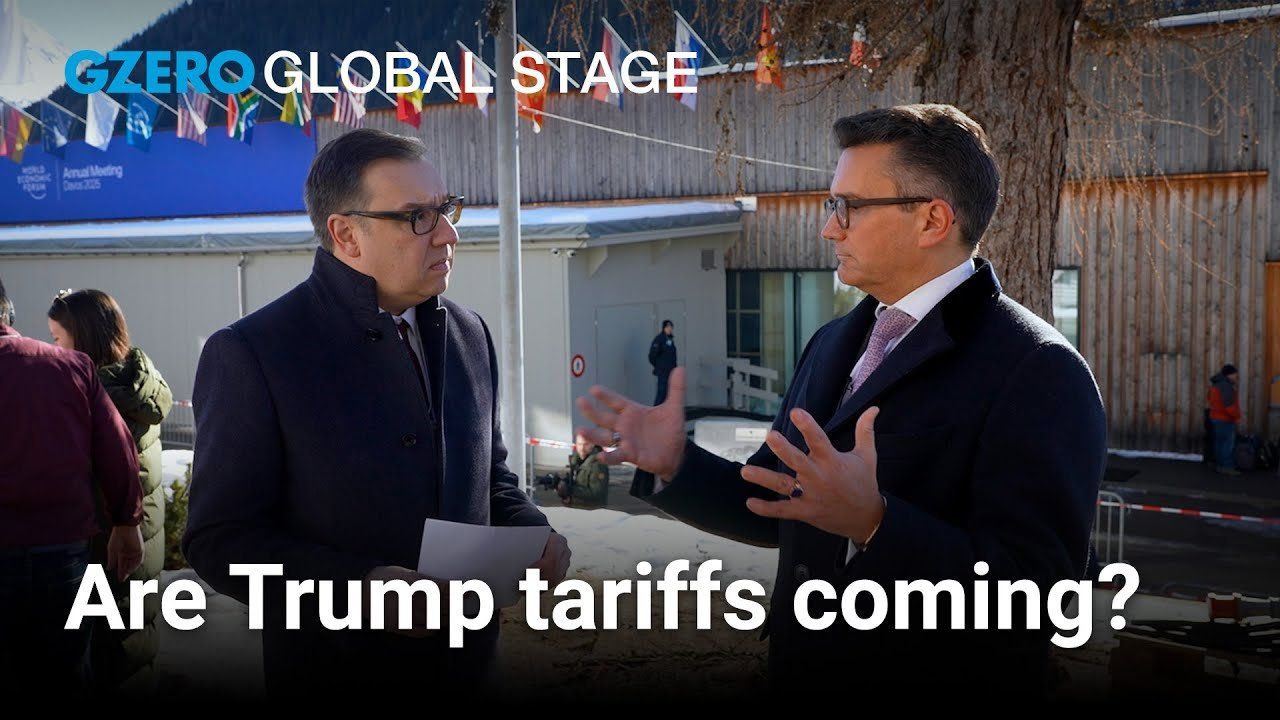January 21, 2025
In a rapidly shifting geopolitical landscape, businesses are focusing on adapting to global trade uncertainties. Dr. Nikolaus Lang, global leader of the BCG Henderson Institute, shared his insights with GZERO’s Tony Maciulis during the World Economic Forum in Davos. Dr. Lang discussed the Trump administration’s cautious approach to tariffs, emphasizing the likelihood of increases in the near future. "Our point of view is that there will be tariff hikes in one way or the others. Whether this will be the magnitude that was kind of mentioned in the campaign remains open."
While the delay may provide corporations some time to prepare, he stressed the urgency for businesses to strengthen their "geopolitical muscle" by diversifying supply chains, planning for inflationary volatility, and integrating geopolitical awareness into decision-making. Despite the complexities, Dr. Lang remains optimistic about global trade growth, forecasting a 3% annual increase over the next decade. Emerging markets, particularly Southeast Asia and India, are poised to benefit significantly, offering substantial expansion opportunities. His insights underscore the need for businesses to remain agile and proactive, finding opportunities even amid disruption.
This conversation is presented by GZERO, in partnership with Microsoft, from the 2025 World Economic Forum in Davos, Switzerland. The Global Stage series convenes global leaders for critical conversations on the geopolitical and technological trends shaping our world.Follow GZERO coverage of Davos here: https://www.gzeromedia.com/global-stage
From Your Site Articles
More For You
People in support of former South Korean President Yoon Suk Yeol rally near Seoul Central District Court in Seoul on Feb. 19, 2026. The court sentenced him to life imprisonment the same day for leading an insurrection with his short-lived declaration of martial law in December 2024.
Kyodo
65: The age of former South Korean President Yoon Suk Yeol, who was sentenced to life in prison on Thursday after being found guilty of plotting an insurrection when he declared martial law in 2024.
Most Popular
In an era when geopolitics can feel overwhelming and remote, sometimes the best messengers are made of felt and foam.
Hungarian Prime Minister Viktor Orban holds an international press conference in Budapest, Hungary, January 5, 2026.
REUTERS/Bernadett Szabo/File Photo
The Hungarian election is off to the races, and nationalist Prime Minister Viktor Orbán is facing his most serious challenger in 16 years.
How people in G7 and BRICS countries think their policies will effect future generations.
Eileen Zhang
Does skepticism rule the day in politics? Public opinion data collected as part of the Munich Security Conference’s annual report found that large shares of respondents in G7 and several BRICS countries believed their governments’ policies would leave future generations worse off.
© 2025 GZERO Media. All Rights Reserved | A Eurasia Group media company.
